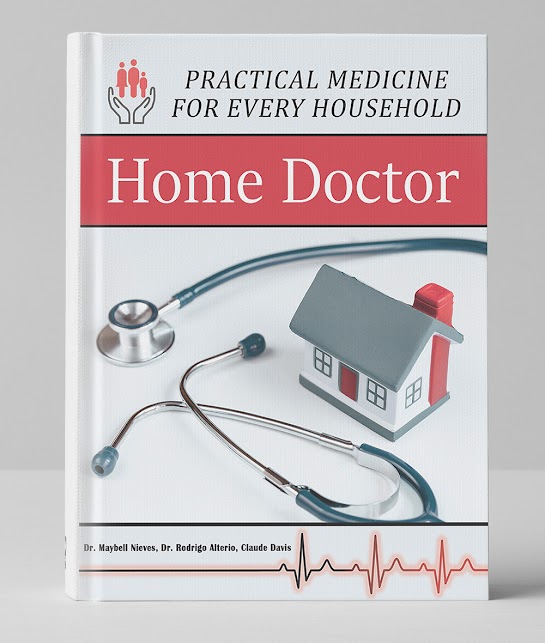
My Dog Has Diarrhea – Causes, Treatment, and Prevention
Diarrhea in dogs is a common problem that every dog owner will likely face at some point. While it is often harmless, it can also signal more serious health issues. In this blog post, we will explore the common causes of diarrhea in dogs, potential treatment methods, and prevention strategies. Since our dogs cannot tell us what is wrong, it is essential to interpret their symptoms correctly and take appropriate action.
Causes of Diarrhea in Dogs
Diarrhea can be triggered by a variety of factors. Some of the most common causes include:
Dietary Changes: A sudden change in diet can disrupt a dog’s digestive system. Dogs have sensitive stomachs, and a rapid switch from one type of food to another can lead to diarrhea. It’s advisable to transition to new food gradually by mixing it with the old food over a period of time.
Spoiled Food: Dogs are naturally curious and sometimes eat things they shouldn’t, such as garbage or spoiled food. This can lead to gastrointestinal upset and diarrhea. Ensure your dog does not have access to trash and always check the freshness of their food.
Food Intolerances and Allergies: Some dogs may have adverse reactions to certain foods, such as dairy, grains, or specific types of meat. These intolerances can manifest as diarrhea, gas, or skin rashes. If you suspect a food allergy, consulting with a veterinarian is crucial.
Parasites: Intestinal parasites like Giardia, roundworms, or hookworms are common causes of diarrhea in dogs. Regular deworming and fecal examinations by a veterinarian can help detect and treat parasitic infections early.
Infections: Bacterial infections (such as Salmonella, Campylobacter) or viral infections (such as Parvovirus, Coronavirus) can lead to severe diarrhea. These infections are often accompanied by other symptoms like fever, vomiting, and loss of appetite.
Stress: Dogs are sensitive to changes in their environment or routine. Moving to a new home, the arrival of a new family member, or even a trip to the vet can cause stress, which might manifest as diarrhea.
Medications and Toxins: Some medications, including antibiotics or non-steroidal anti-inflammatory drugs (NSAIDs), can cause diarrhea as a side effect. Additionally, ingestion of toxic substances like household cleaners, certain plants, or chocolate can lead to gastrointestinal distress.
Underlying Health Conditions: Chronic conditions such as inflammatory bowel disease (IBD), pancreatitis, or liver and kidney disease can cause recurrent diarrhea. If your dog experiences frequent bouts of diarrhea, a thorough veterinary examination is recommended to rule out any underlying issues.
Symptoms to Watch For
While diarrhea is a symptom itself, there are other signs that may indicate a more serious problem. It’s important to observe your dog closely and seek veterinary attention if you notice any of the following:
- Blood in the Stool: This could indicate a more severe issue, such as internal bleeding or an infection.
- Frequent or Persistent Diarrhea: If your dog has diarrhea for more than 24 hours, it may be a sign of a more serious condition.
- Vomiting: Combined with diarrhea, vomiting can lead to severe dehydration and should be addressed promptly.
- Lethargy: If your dog seems unusually tired or lacks energy, it could be due to dehydration or an underlying illness.
- Fever: A higher than normal body temperature may indicate an infection.
- Loss of Appetite: If your dog refuses to eat, it may be feeling unwell, and a veterinarian should be consulted.
How to Treat Diarrhea in Dogs
Treatment for diarrhea depends on its underlying cause. Here are some general guidelines to follow when your dog is experiencing diarrhea:
Withhold Food: For mild cases of diarrhea, it is often recommended to withhold food for 12-24 hours to give the dog’s digestive system a chance to settle. Make sure your dog has access to fresh water to prevent dehydration.
Introduce a Bland Diet: After the fasting period, gradually reintroduce food using a bland diet such as boiled chicken or turkey and plain white rice. This diet is easy on the stomach and can help firm up the stool. Feed small portions several times a day.
Hydration: Ensure your dog stays hydrated, especially if diarrhea is accompanied by vomiting. Electrolyte solutions designed for pets can be helpful in preventing dehydration.
Probiotics: Probiotics can help restore the natural balance of gut bacteria and may aid in resolving diarrhea. You can find probiotic supplements designed specifically for dogs, or consult your veterinarian for recommendations.
Medication: In some cases, your vet may prescribe anti-diarrheal medications or antibiotics to address underlying bacterial infections. Never give your dog human medication without consulting a veterinarian.
Veterinary Care: If diarrhea persists for more than 24-48 hours, or if you notice severe symptoms such as blood in the stool or lethargy, seek veterinary care immediately. A vet will conduct a thorough examination and may perform tests such as blood work, fecal analysis, or imaging to diagnose the problem.
Preventing Diarrhea in Dogs
Prevention is always better than cure. Here are some tips to help prevent diarrhea in your dog:
Diet Consistency: Keep your dog’s diet consistent and avoid sudden changes. If you need to change their food, do so gradually over a week by mixing the new food with the old food.
Avoid Table Scraps: Human food can be rich, spicy, or contain ingredients that are harmful to dogs. Stick to a high-quality dog food that meets all your pet’s nutritional needs.
Regular Deworming: Schedule regular deworming treatments as recommended by your veterinarian. This helps prevent parasitic infections that can cause diarrhea.
Keep Trash Out of Reach: Ensure your dog does not have access to garbage or spoiled food. Be mindful of what your dog can reach when unsupervised.
Vaccinations: Keep your dog’s vaccinations up to date to protect against infectious diseases that can cause diarrhea, such as Parvovirus.
Avoid Stress: Try to minimize stress by maintaining a regular routine. If changes are unavoidable, introduce them gradually to give your dog time to adjust.
Monitor Play and Chewing: Dogs love to chew on things, but swallowing non-food items can lead to gastrointestinal issues. Monitor your dog’s playtime and remove any potentially harmful objects.
Conclusion
Diarrhea in dogs can range from a mild inconvenience to a sign of a serious health issue. By understanding the potential causes and knowing how to respond, you can ensure your dog receives the care they need. Always monitor your dog’s health closely and don’t hesitate to seek veterinary advice if you are concerned. By taking preventive measures and being prepared to act when necessary, you can help keep your furry friend happy, healthy, and free from digestive woes.
Remember, your dog relies on you for their well-being. A little vigilance can go a long way in ensuring their health and happiness.


